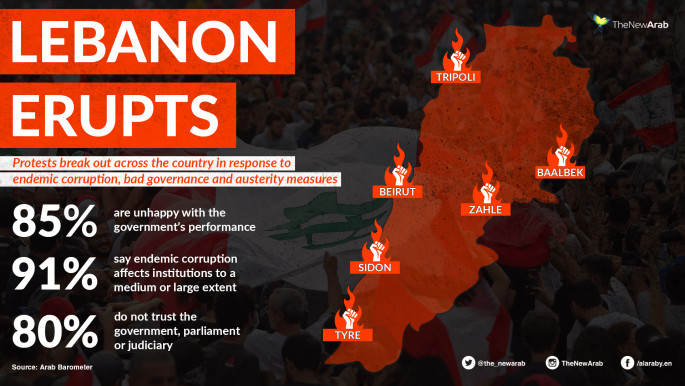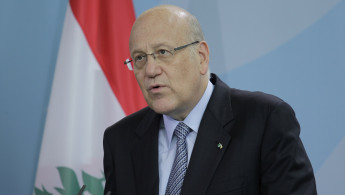Lebanese judge files corruption charges against former prime minister Najib Mikati amid ongoing protests
Judge Ghada Aoun, the Public Prosecutor of the Mount Lebanon Governorate, also filed the same charge against Lebanon's Bank Audi.
The charges relate to state-subsidised housing loans which Mikati is said to have obtained illegally from Bank Audi.
An adviser to Mikati denied the charges, saying that the loans met regulations set by the Banque du Liban, Lebanon's central bank.
He added that the charges were politically motivated, made in response to Mikati's criticism of President Michel Aoun and support for anti-government protesters.
Bank Audi "categorically denied" any involvement in illegal enrichment in a statement.
Read more: Five things you need to know about the protests in Lebanon
Mikati served as Prime Minister of Lebanon from 2011 to 2014 and briefly in 2005. He is currently a member of parliament and the leader of the Azm Movement, a small political party based in the northern Lebanese city of Tripoli.
He is also Lebanon's richest man, with a personal fortune estimated at $3.3 billion and a long career in telecommunications investments.
Judge Ghada Aoun has a mixed reputation in Lebanon, with some observers seeing her as a prominent, aggressive, and incorruptible prosecutor, while others accuse her of bias and favour towards the country's president, Michel Aoun (no relation).
At a press conference held after the charges were made, Mikati addressed President Michel Aoun directly.
"Mr. President, help depoliticise the judiciary, leave the army out of [political] differences, and stop gagging the media," he said.
The spontaneous, leaderless demonstrations in Lebanon began on Thursday and were triggered by the government's now-cancelled plan to impose a tax on phone messaging services like Whatsapp.
Twitter Post
|
The protests have since turned into an uprising against political corruption, negligent and bad governance, austerity measures, and a dire economic situation. Protesters have demanded the resignation of Prime Minister Saad Hariri's government.
Lebanese special forces clashed with protesters in the Jal al-Dib area north of Beirut on Wednesday and Lebanese National TV has been criticized for not broadcasting footage of protests.
While Mikati was formerly Prime Minister of Lebanon, he is no longer a government insider, and protesters are unlikely to see his indictment as more than a cosmetic measure falling far short of their anti-corruption demands.
Follow us on Twitter: @The_NewArab





 Follow the Middle East's top stories in English at The New Arab on Google News
Follow the Middle East's top stories in English at The New Arab on Google News


